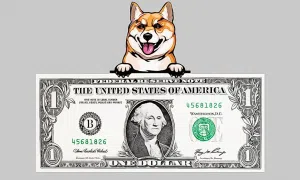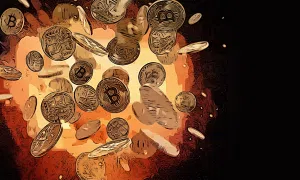Contents
Blockchain technology has created a whole world of decentralized finance (DeFi), NFT, and new products and platforms. There are also new ways of organizing and owning, built on tokenization and the crypto economy. Users have been able to influence and manage different platforms and services. And it’s not just miners who can become part of the community. And the influence of people within communities is often organized through governance tokens.
What are governance tokens?
Control tokens are the assets of a particular decentralized protocol. Their owners receive certain bonuses and rights, allowing people who are part of the community to influence the further development of the protocol, for example, on how and where the budget will be spent, with whom and how will be the partnership, integration, and so on. In some ways, this is similar to shareholder rights.
Governance token holders can influence the course of a movement in these ways: it is submitting a formal proposal for the desired change. If it does not contradict certain criteria, it is even voted on. In the course of this, the owners of those same control tokens use them to vote on the proposed changes. How exactly this happens depends on the specific protocol.
Because of the lack of leadership in such hierarchical organizations, management tokens serve as a decision-making mechanism in decentralized autonomous organizations (DAOs).
The brand new newsletter with insights, market analysis and daily opportunities.
Let’s grow together!
How do governance tokens work?
Traditional companies have an executive body, for example, a board of directors, and shareholders. It is in the hands of the members of these bodies that the most power is concentrated in making decisions about the organization’s future direction. But there is no definite management group of people in FAO. But important decisions have to be made. That is why
DAOs differ from traditional corporations because they do not have a centralized group of decision-makers. However, they still need to make decisions that affect the organization’s future. That’s why there is a vote on the proposals put forward and approved. Management methods may be different, but there are governance tokens everywhere.
Because they are on a blockchain, ownership and distribution are transparent to all community members.
In DAOs, governance token holders place their vote on the blockchain when a certain proposal is voted on. Typically, the value of a token holder’s vote is higher the more tokens they own.
What’s so special about governance tokens?
Management tokens refer to utility tokens. The latter is used to exercise certain rights and provide access to various products or services of the protocol. The utility of control tokens is to give the owner the right to influence the direction of the protocol. The brightest examples among DeFi are Uniswap with its UNI tokens and Compound — COMP tokens.
Governance tokens are:
- A special kind of cryptocurrency.
- Giving holders the right to vote on the blockchain.
- Distributing the power to make major decisions about the platform to the entire community.
Holders of these tokens are also owners of the protocol, regardless of how many control tokens each holds. Some protocols’ governance tokens have special attributes that give their holders additional benefits.
Who’s using governance tokens?
Almost every new blockchain project has its control tokens. On certain platforms, they are extremely useful and needed for much more than simply giving a vote.
- With its MKR governance tokens, Maker is considered one of the pioneers in DeFi. MKR holders can vote for the DAO management process and approval of new collateral types.
- Uniswap’s UNI has the most impressive market cap of any management token ($5B at the time of writing).
- veToken Finance allows DeFi users to increase returns and farm rewards without losing liquidity. They can store tokens to get perks for doing so. veToken Finance works mostly with projects that have Voting Escrow, Gauges, and a profit-sharing model.
- The RAI protocol is a decentralized and untethered governance token for the FLX stablecoin protocol. It serves as a backup in case the protocol begins to experience some difficulties. FLX holders can influence the more complex areas of the protocol.
- Decentralized stablecoin exchange Compound uses its CRV management token as a reward for liquidity providers, incentivizing them to add coins to liquidity pools. Compound’s COMP token holders can manage and change the protocol of the interest rate markets. And they can delegate their voting rights to another participant.
Advantages and disadvantages of governance tokens
A review of various management tokens has shown that they are extremely important for decentralization. However, we decided to put together a short list of their main pros and cons.
Pros
- Ability to decentralize.
- New opportunities for productive collaboration with other community members through voting and discussion.
- Creating a sense of engagement and interest in the project among community members.
- Increased efficiency.
Cons
- The emergence of self-serving and malicious agents. Such people will vote in support of their interests rather than the community.
- Limited visibility of accountability. Who will be held accountable for project failure?
- Whales (owners of large numbers of tokens) can be a big problem and dictate their terms to the entire community. And this is not decentralization in nature at all.
Examples of governance tokens
- MKR is a Maker governance token that MakerDAO runs. MakerDAO is the largest Web3 lending platform and one of DeFi’s most powerful platforms. MKR owners can vote to change the platform’s rules, including economic aspects.
- One of the largest DEX (decentralized exchange) of the Ethereum Uniswap network uses the UNI control token. Their holders can make suggestions and vote on the future of the platform. But the developers still retain the most influence over the protocol development.
- AAVE tokens allow holders to influence security and functionality. They can vote on issues concerning the Aave platform. The Aave protocol enables you to earn interest on your digital assets by investing them in pools from which you can borrow assets in the form of stable-rate loans, variable-rate loans, and flash loans.
Takeaways
In very general terms, governance tokens have much in common with traditional shares: they offer control over the development of the protocol, can direct financial flows, and even provide dividends to their owners.
But unlike stocks, management tokens have a limited scope, and voting is limited to specific parameters. In addition, they are not legally securities.
Management tokens are usually traded at the start of a project and provide the liquidity that makes up the budget of the protocol. When the protocol needs to be modified, these funds are used.
Token holders often gather at the DAO, make various proposals, and vote for or against it themselves. The strength of the vote can be affected by the number of control tokens concentrated in one hand and the time they are held.
However, there are still risks to whales and the malicious actions of some community members who may conspire to dictate their terms.






